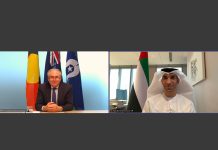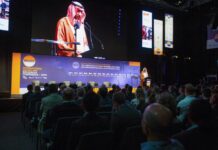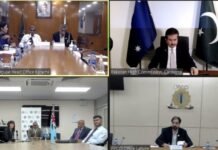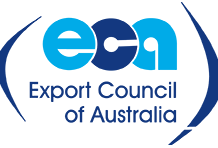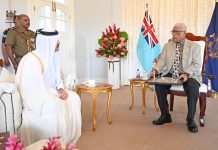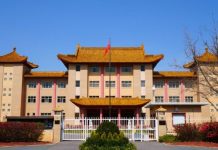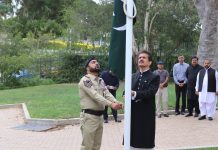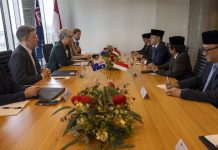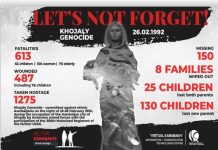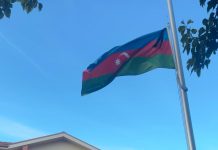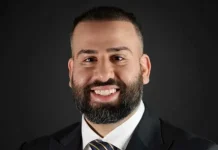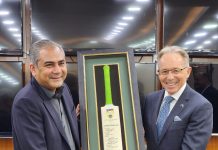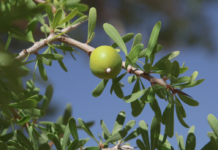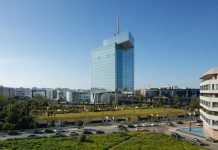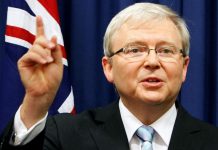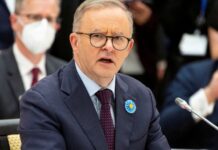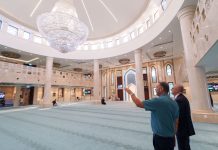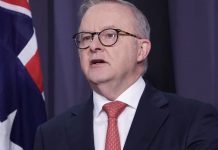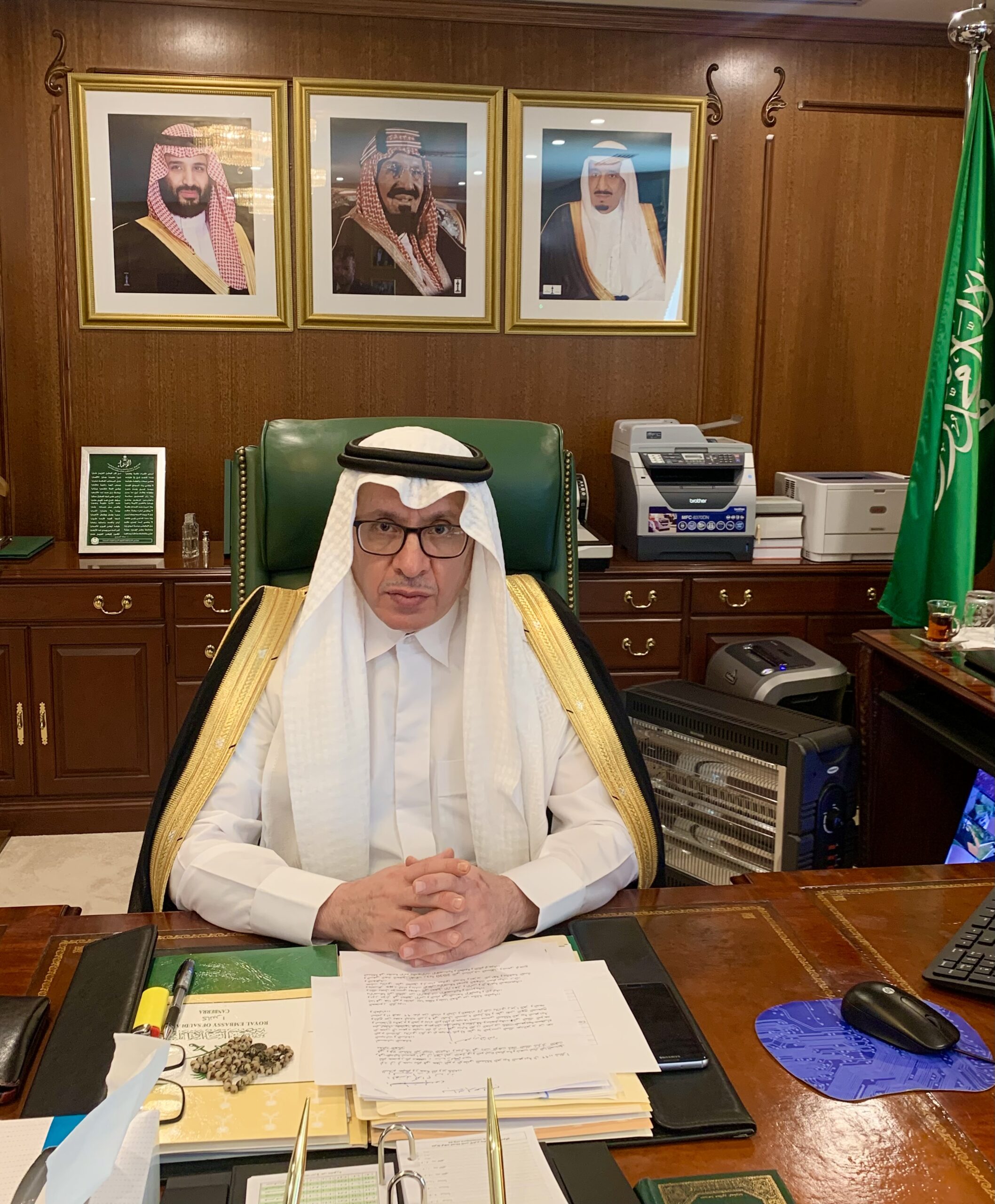Working actively to further consolidate the strong ties between Saudi Arabia and Australia, Ambassador of Kingdom of Saudi Arabia Mesaad Ibrahim A. Al Sulaim has encouraged Australian stake holders to work together to build ties to a strategic level.
In a wide-ranging interview with Vibe Media on the eve of Saudi Arabian 92nd National day, Ambassador Al Sulaim stressed that KSA and Australia are natural partners despite their geographical distance, both countries have developed intense and fruitful bilateral ties because of flourishing trade and investment, defence ties and growing people to people exchanges.
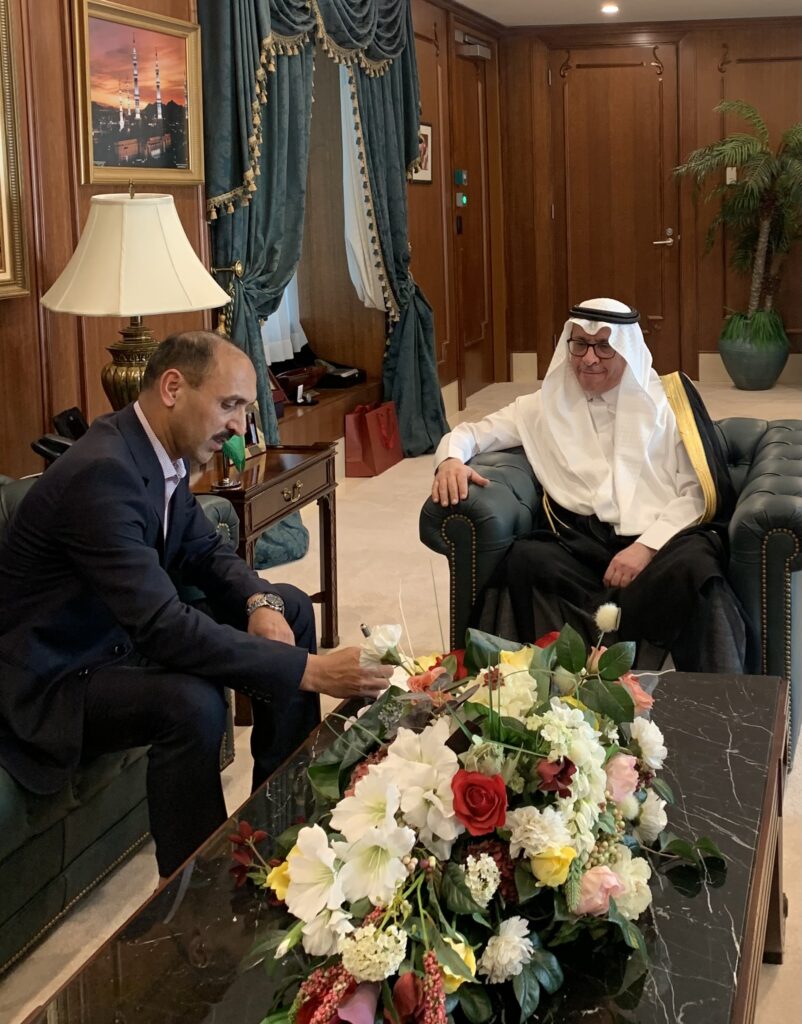
Australia and Saudi Arabia enjoy a relationship underpinned by commercial ties, shared membership of the G20, educational exchange and Saudi Arabia being home of Islam. Both nations have well-established cooperation in countering terrorism and are both members of the Global Coalition to Defeat-ISIS.
There is significant potential for economic ties to grow given areas of complementarity in agriculture, mining services, green energy, education, and construction.
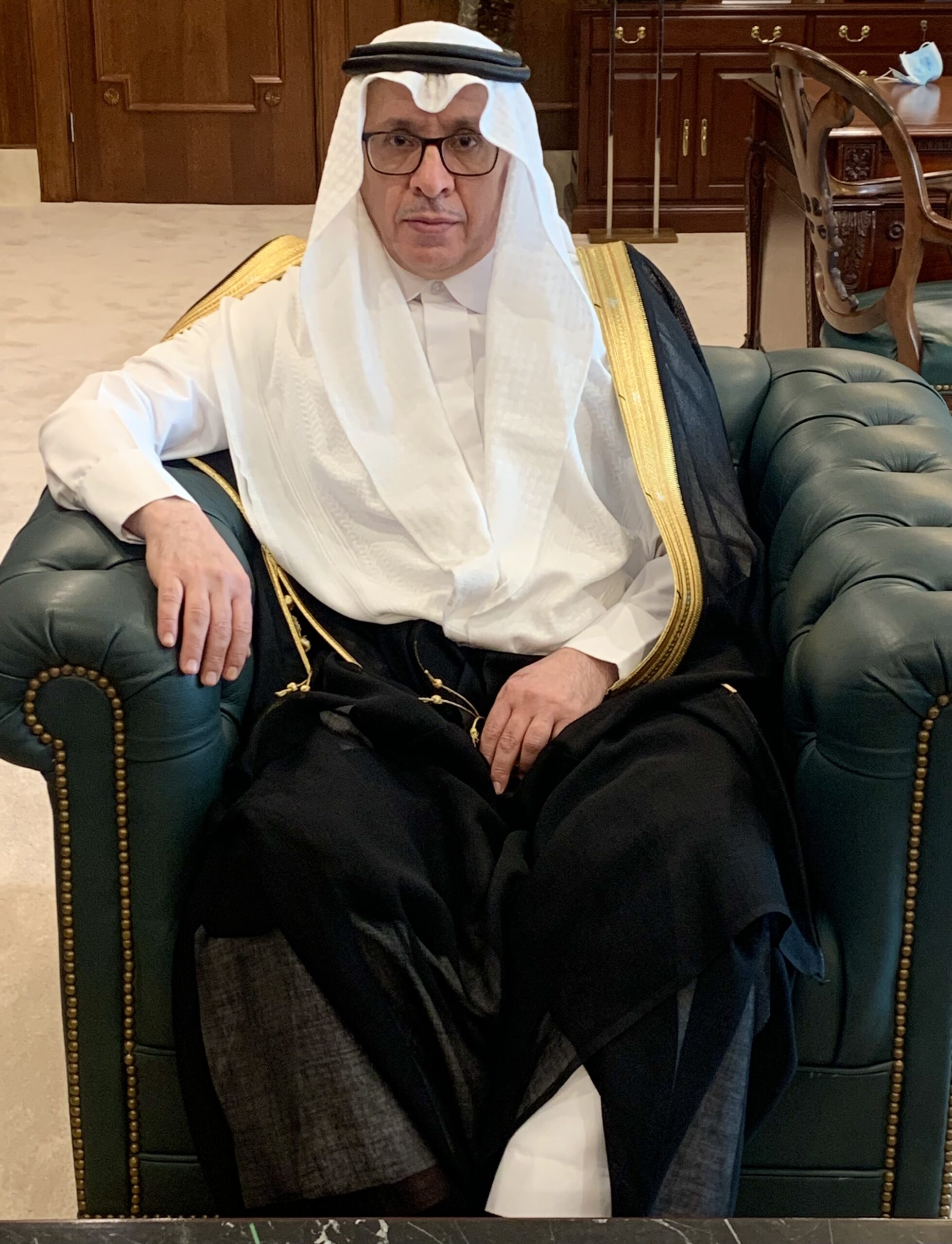
Ambassador Mesaad Ibrahim A. Al Sulaim appreciated that Australia has a strong and longstanding relationship with Kingdom of Saudi Arabia. Saudi Arabia is one of Australia’s major markets in the Middle East with two-way trade totalling, and around 4,500 Saudi students are enrolled in Australian universities and colleges. Since 2004 more than 50, 000 students came to Australia for higher education.
The ties of trade are strong and the growing number of Saudi students in Australian universities has strengthened people-to-people links. This expanding educational relationship is reflected in the Memorandum of Higher Education Cooperation between the two countries.
And there are other growing people-to-people links. Many tourists from Saudi Arabia visit Australia each year, while many Australian citizens work in Saudi Arabia, mainly in health, education, and other specialist areas.
Level of engagement:
The Kingdom and Australia participate and share many international forums and organizations of significance. Both countries are members of G20, the largest economic group in the world the Group. The two countries continue to intensively cooperate at the governmental and private sector. Both countries are key regional players and possess strategic significance at the international arena. there are many common areas that our two countries are working to advnace, such as achieving global security, stability, and peace and unifying efforts to address all future challenges including the crisis of climate change.
The Kingdom has been playing a key role in this field through Green Saudi Arabia and the Green Middle East Initiatives.
Both countries are major economies, possess regional and international political weight, and enjoy good relations. There exists cooperation and common interests as well as a real desire to further consolidate the existing cooperation, which would reap benefits to the two friendly countries and people.
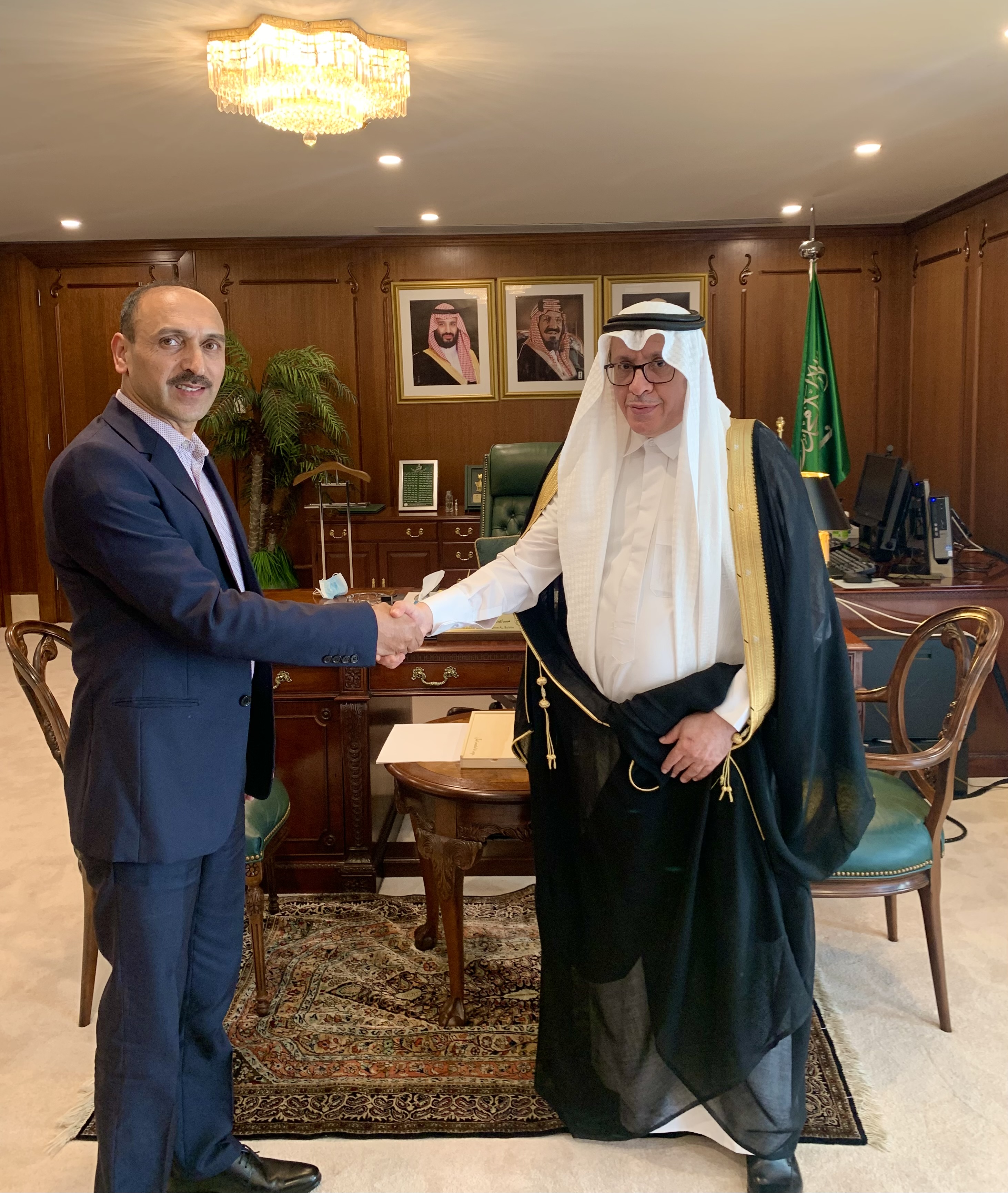
Plan of action to consolidate ties:
Since I commenced my duty as the Kingdom’s Ambassador to Australia, I have received instructions from my government that emphasized the importance of working to strengthen and harbour closer relations between Saudi Arabia and Australia. Alongside the Embassy staff, I have worked to strengthened people-to-people links, increase cooperation, trade exchange, and mutual visits. In fact, visits of Australian experts, officials, businessmen, and investors to the Kingdom and from the Saudi side to Australia have been organized. Now, with most COVID-19 related restrictions and health measures lifted, economic growth has begun to return to longer term patterns. we will continue working hard and with diligence to move forward, to realize the goal of rising with the relationship between our two countries to stronger and well-advanced stages.
Vision 2030 and potential opportunities for Australian investors:
The Saudi Vision 2030 was announced in 2016, led by the Crown Prince Mohammed bin Salman. One of its most important objectives is to raise the economic level, diversify sources of income, encourage foreign investment in Saudi Arabia, and set regulations to preserve the right of those investors. The Kingdom has also launched an electronic platform (Invest Saudi), which offers many services to foreign investors.
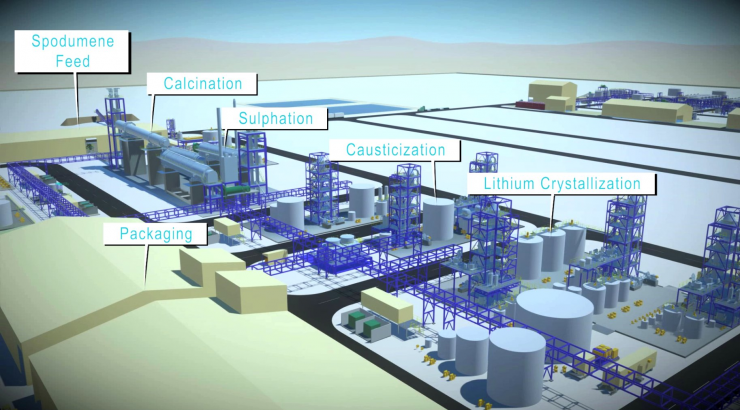
Many Australian companies are currently working on several projects related to the Saudi vision 2030. After the Kingdom’s recent amendment of its investment regulations, all foreign investors are now able to enter the Saudi market and to electronically establish their companies within a few minutes. We are encouraging all Australian investors wishing to enter the Saudi market, to contact us at the Embassy in Canberra or contact the Commercial Consul’s office at the Kingdom’s Consulate General in Sydney; we will provide them with support and information as well as introduce – to the investors – the available opportunities.
Defence and security ties:
The Kingdom of Saudi Arabia and Australia maintain regional peace and stability through their strong participation in the defense and security fields with relevant international parties that contribute to preventing and combating extremism and seeking stability and peace, especially at the regional level. The strength of this cooperation has a significant impact on alleviating conflicts and helping in regional stability.
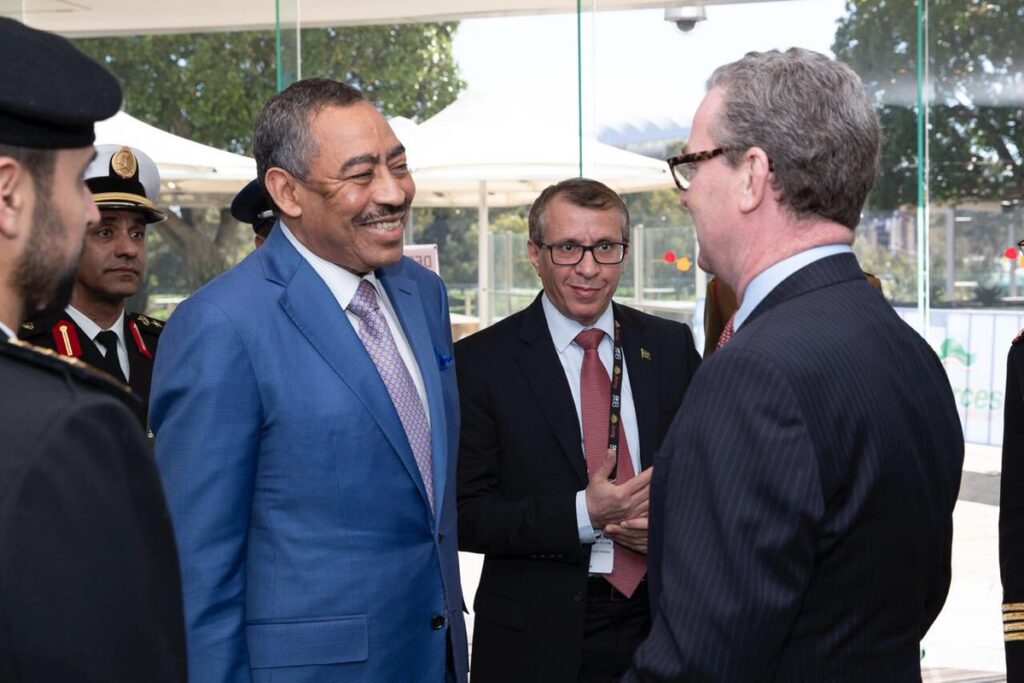
Measures to improve bilateral trade:
Saudi Arabia is an important trading partner for Australia. In 2020, the two-way goods and services trade totalled $2.23 billion. Saudi Arabia is a substantial market for beef, sheep meat, barley, wheat, dairy products, cosmetics, pharmaceuticals, vehicle parts and accessories and vegetables. Saudi Arabia is also an important source of investment into Australia with an estimated $3.9 billion worth of assets (2018).
The Kingdom is one of Australia’s most important partners in the region. The Saudi Agricultural and Livestock Investment Company (SALIC) owns more than 211,000 hectares of agricultural land in Western Australia and more than 40,000 heads of sheep, with around 120,000 tons of wheat being produced and imported to the Kingdom per year. Last year SALIC entered a new investment deal to acquire Australian companies and factories that specialize in red meat. It is our ambition that – with the establishment and application of new regulations and laws in the Kingdom which greatly facilitate the entry of foreign investors into the Saudi market and the establishment of companies in Saudi Arabia – in addition to the great opportunities between the two sides and Australia’s pursuit of entering new markets and diversifying its trade target markets, there will be a significant leap in the trade balance between the two countries in years.
The Kingdom has facilitated the procedures for granting tourist visas to citizens of 49 friendly countries, including Australia. Australian passport holders are now able to – in a few minutes – obtain electronic tourist visas online to the Kingdom at the following link: https://www.visitsaudi.com/en. Alternatively, Australian can obtain a Saudi tourist visa upon arrival at one of the Saudi airports, omitting the need for them to visit the Saudi Embassy.
92nd Saudi National Day:
The Saudi National Day during which generations remember the sacrifices of their forefathers in order to recover the capital Riyadh, and work to unify the country on 23 September 1932, under the leadership of its founder King Abdulaziz bin Abdul Rahman Al Saud, may Allah have mercy on him, after a great struggle that lasted 30 years, which resulted in the establishment of the “third” Saudi state named “the Kingdom of Saudi Arabia”, which has continued from that date to the current era under the leadership of King Salman bin Abdulaziz and the Crown Prince HRH Prince Muhammad bin Salman. Under the leadership of its rulers and the determination of its people, the Kingdom of Saudi Arabia is in continuous vast development and great progress.
Under King Abdulaziz bin Abdul Rahman Saudi Arabia became Kingdom in 1932
Explaining the ‘Third Saudi State’, Ambassador Mesaad Ibrahim A. Al Sulaim said that Saudi Arabia is a country whose roots go back nearly 300 years. In 1727 Gregorian, the “first” Saudi state was established by Imam Muhammad bin Saud and lasted until 1818 Gregorian, after it was subjected to several wars and conflicts in the region at the time. After only 7 years in the year 1824 Imam Turki bin Abdullah bin Muhammad bin Saud was able to re-establish the “second” Saudi state, which withstood the heated situation in the Middle East in that period until 1891. Then the founding King Abdulaziz bin Abdul Rahman restored the state and establish the third Saudi state in 1902. King Abdulaziz bin Abdul Rahman unified the state, where it became the Kingdom of Saudi Arabia in 1932. Therefore, today we celebrate the 92nd anniversary of this occasion, noting that Saudi Arabia has adopted the date of 22 February as an official national day called “Foundation Day”, which is celebrated annually to commemorate the founding of the first Saudi state.



